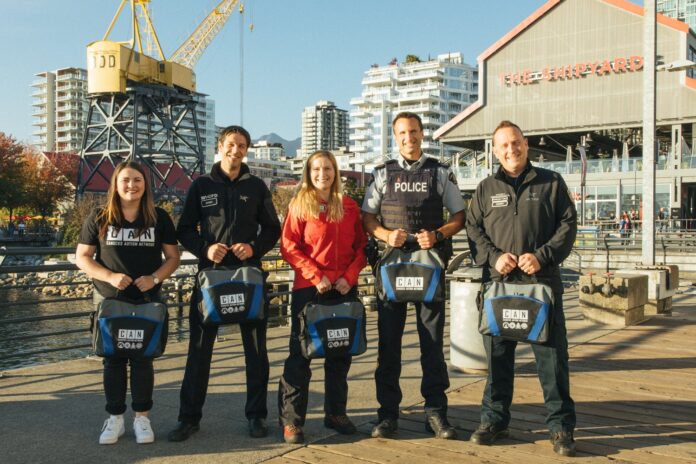AS of October 2021, the District of North Vancouver Fire and Rescue Services, City of North Vancouver Fire Department, North Vancouver RCMP and North Shore Rescue have all completed training on how to identify and safely support people on the autism spectrum in emergency situations. Over 200 first responders attended the Canucks Autism Network (CAN) training, with the common goal of improving their understanding of autism to create a more inclusive and supportive North Shore community.
The prevalence of autism continues to increase, with 1 in 37 children being diagnosed in BC. Individuals on the autism spectrum are seven times more likely to interact with first responders in an emergency setting. Regardless of their age, autistic individuals can experience anxiety, sensory sensitivities and communication barriers, particularly in emergency environments. CAN training increases first responders’ basic understanding of autism, and improves the ability for fire, police and search and rescue personnel to respond to the unique needs of community members who are on the autism spectrum.
“We believe that every community should take action to support individuals on the autism spectrum,” said Hallie Mitchell, CAN Director of Children’s Programs and Community Training. “Before this partnership, we had never seen four first responder groups from the same municipality unite to receive our training. It’s a remarkable show of support for the North Shore’s autism community.”
According to Mike Danks, Assistant Fire Chief – North Vancouver City Fire Department (NVCFD) and Team Leader for North Shore Rescue (NSR), it is his duty as a first responder to commit to continuous learning in order to best support the diverse needs of community members.
“First responders are dispatched to a myriad of calls for subjects with all ranges of abilities and backgrounds every day,” said Danks. “It is of utmost importance to NVCFD and the District of North Vancouver Fire and Rescue Services (DNVFRS) that we are well prepared and able to provide inclusive, comprehensive emergency response for every callout. It is our duty to flex and learn to meet and exceed the ever changing needs and requirements of our community. Our collaboration with CAN and our service partners to learn about autism has been engaging, comprehensive and vital.”
North Vancouver RCMP Sgt. Peter DeVries further highlighted how this deeper level of understanding can make all the difference between a positive and negative outcome.
“Every day as police officers, we encounter people from across society, spanning a range of abilities, challenges, and unique characteristics,” said DeVries. “As with every aspect of the work we do, having the proper tools and training can make the difference between success and failure, not just for us, but also for the person we encounter. This training gives us another tool we can use, and equips us to meet the diverse needs of those who are on the spectrum.”
CAN’s two-part workshop provided a valuable introduction to autism alongside practical strategies for communication and support. Participating firefighters, officers and search and rescue volunteers are also now armed with CAN resource kits that are housed aboard their vehicles. The kits include sensory toys to reduce anxiety, visual resources to improve communication, and noise-cancelling headphones to ease sensory sensitivities.
CAN is considered a provincial leader in providing autism training to a variety of community-level groups, including over 1,600 first responders across BC and beyond. View CAN’s full suite of autism training and resources at www.canucksautism.ca/training.












